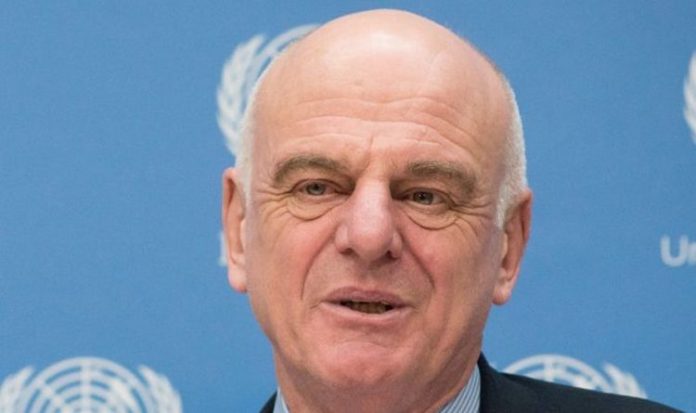Dr David Nabarro has helped plan The Honeycomb Network, which is aimed at reopening communities, with the appointment of a spine of key support individuals within each area to offer reassurance, mental health support, and emergency help when needed. Under Dr Nabarro’s plans, neighbourhood support networks across the nation would boost morale and provide practical measures to help the UK navigate a stable route out of lockdown. “The Honeycomb Network is based on simple mathematics,” said Dr Nabarro.
“It is formulated on a realistic approach to how individuals, particularly those who are older or more isolated, can take more confident strides back to normality by knowing that support is there.
“Steps forward will feel safer for people if they know that they will be informed if new cases appear in the local area. If a community can respond to situations with unity and common purpose then we will be in good shape.”
Under the proposals, vulnerable people will have the contact number of a key individual written on their notice boards or easily accessible to them on the back of their phone.
“One support person can cover approximately 50 people,” said Dr Nabarro.
“That may mean that the individual is there at the other end of a call if a warm voice is needed, or sometimes they will be for them to provide responsible advice if a person is feeling unwell and unsure if they have symptoms of the virus, other times it will be to help in an initial response to an emergency situation.
“What we have learned from other countries, particularly throughout East Asia, is that small communities can play a crucial role.
“Localised efforts, both in terms of neighbourhood support systems and emergency response testing, have value.”
Dr Nabarro, who was the UN Secretary-General’s Special Envoy on Ebola, noted that examples of UK locally-led efforts were already in display in the education system, identifying Lincoln and Loughborough universities as examples.
Leicestershire’s director of public health, Mike Sandys, who is helping coordinate local efforts in those areas, said: “As always the key to this has been good joint working.
“If my team and I have helped in advising from a public health perspective and, more pragmatically, going out to halls of residences to advise where things can be made better, then I’m happy.”
John Atkinson, a living systems specialist working with the UN and multilateral bodies, has helped devised the Honeycomb Network with Dr Nabarro.
He said: “All over the UK we already have different groups coming together to work out how to safely get on with life.
“We see workplaces arranging transport, temperature checks and looking out for those who are isolating.
“Shops and small businesses putting in place protocols around distancing, hygiene, and face coverings to take care of their customers.
“Neighbours, calling on elderly people who live nearby, making sure they are getting their shopping and hearing a friendly voice.”
Mr Atkinson noted that looking out for each other in times of need was part of any nation’s character.
“Making sure our neighbours know how to reach us if they need help, passing on trusted knowledge on what the symptoms are, when and how to isolate, how to get a test.
“This works. It is the first line in our response to the virus. More people, doing more of the right things, more of the time, because they choose to. Where we see this happen, we see healthy communities.”







